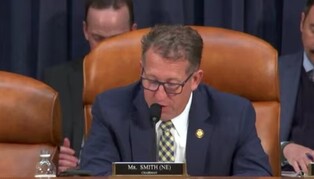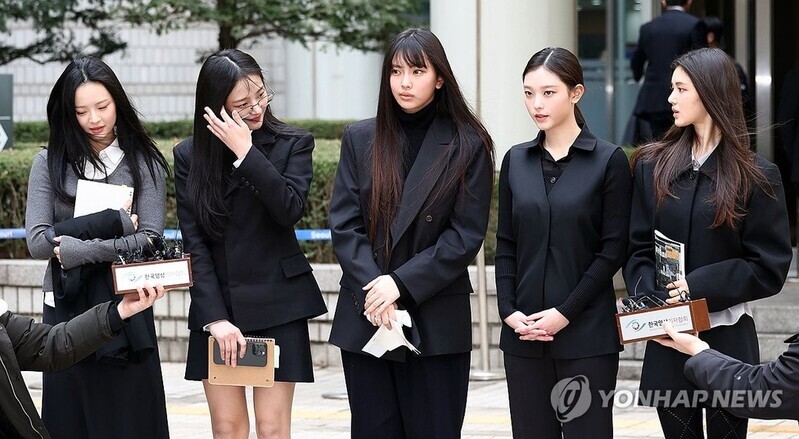 |
| ▲ This photo, provided by SM Enteratainment, shows chief producer and major shareholder Lee Soo-man. (PHOTO NOT FOR SALE) (Yonhap) |
 |
| ▲ This photo, provided by SM Entertainment, shows the logo of the agency. (PHOTO NOT FOR SALE) (Yonhap) |
SEOUL, Feb. 6 (Yonhap) -- SM Entertainment Co., Ltd., which has been at the forefront of the K-pop industry for a long time, has recently put a strong stance on the resignation of its founder Lee Soo-man; such a stance of the representative South Korean multinational entertainment agency is analyzed to demonstrate how challenging it is for a firm to maintain its market dominance without undergoing a revolution.
SM Entertainment’s market capitalization as of noon was about 2.2 trillion won, ranking third in the market after HYBE (about 7.9 trillion won) and JYP (about 2.6 trillion won), according to data released by the music industry Monday.
The agency began to rake in stratospheric profits starting with the legendary boy band H.O.T., the group that is widely recognized as the pioneer of the first-generation idols (K-pop groups), which was then followed by mega-hit groups Shinhwa, S.E.S., TVXQ, BoA, Girls’ Generation, and EXO; with such globally acclaimed smash-hit groups at its forefront, the agency has never missed the title of “No.1 Agency” for most of the time since its listing in 2000.
However, the third-generation of K-pop groups, which was led by the K-pop sensation BTS and TWICE, began to bloom in the late 2010s; since then, SM Entertainment began to fall behind JYP, the other big multinational entertainment agency in Korea against which SM Entertainment has been competing for market dominance. After HYBE was listed in 2020 after BTS began to pave its way into a global supergroup, SM Ent. slid down to third place behind HYBE and JYP.
SM Ent.’s annual album sales comparing 10 years ago in 2012 and last year makes it more evident that the agency has been experiencing a downtrend: Based on data released by Circle Chart, three of the top 5 albums in terms of annual sales were SM artists, with Super Junior sitting on the first, TVXQ scoring in third place, and SHINee on the 5th.
Nevertheless, the last year’s sales chart clearly witnesses a major shift in the industry: Although the agency’s NCT Dream sat in fifth place with its second album “Glitch Mode,” there was a difference of about 1.4 million copies from BTS’ “Proof,” which topped the list.
Under such circumstances, there has been a voice demanding a structural change rising within the agency. The end of chief producer Lee Soo-man’s production contract exacerbated the conflict by opening a divide within the company between those who agree with his resignation and those who yet stand against it.
Nevertheless, the demand for change has once again been noticed by the lack of response to the e-mail the veteran singer and actor Kim Min-jong, who has been with the agency for 17 years, sent to all SM employees rebuking the management’s decision to end the production contract with Lee.
Even higher expectations for the forthcoming changes that the new “SM 3.0” vision and multi-production system would bring to the overall company have even been noticed.
In a feed an employee anonymously posted on an anonymous community app for the workplace, one said, “As we have entered the 4th generation (idol) era, we have been noticing that neither our agency’s governance nor songs, concepts, and marketing plans are sophisticated enough to be those of a trillion-won-worth corporation.” The employee pointed out, “We should no longer be dwelling on the past glory but stay alert.”
Lee Soo-man, the founder and major shareholder, has been leading the management as a chief producer for 27 years since he founded the company in 1995. Even though he did not receive official wages from the agency after stepping down as a registered director in 2010, the industry was rife with gossip about him taking more than 20 billion won for producing in his private company Like Planning.
It was reported that the producer took 24 billion won through Like Planning in 2021, which was about one-third of the annual operating profits.
To tackle such issues, Alignment Partners Asset Management, which represents the minority shareholders of the agency, has been constantly demanding the management reorganize its system and structure.
The Management eventually succeeded in recommending and appointing Kwak Joon-ho as an auditor last March, slowly breaking down the so-called “Lee Soo-man’s iron fortress.” The Management did not stop and kept on pressuring the agency by demanding major changes within the agency, such as establishing a compensation committee within the board of directors, announcing future production plans, and more. SM Ent. eventually had to accept most of their demands.
The management also made a pledge to make up a majority of its board with directors from outside the firm and set up an internal trading committee, while returning at least 20% of its net profit to shareholders for three years.
As the firm was undergoing such a renewal, Lee eventually expressed his intention to step down last September, saying, “It would be reasonable for me to humbly accept the opinions of our minority shareholders for me to step down as a major shareholder.”
Lee’s resignation was well demonstrated by the firm’s former introduction of a multi-production system: The agency established five production centers and multiple music labels in and out of the firm under the blueprint.
The agency expects that the reorganization will drastically reduce the time required for a rookie group to make its debut, from 3.5 years to “more than two teams a year,” and concurrently increase the number of annual album releases by 30%. By veering from its existing system of relying solely on Lee’s capabilities, the company will enhance its business competitiveness as the K-pop powerhouse.
With such a major change, the company now expects to achieve 18 million album sales this year, an increase of 4 million copies from last year.
The stock market did respond to such an announcement: The agency’s stock price surged 2.13% based on the closing price of Jan. 3, the day when the resignation of Lee was confirmed.
(This article is translated from Korean to English by Ha eun Lee)
(END)
(C) Yonhap News Agency. All Rights Reserved


























![[가요소식] 엑소, 8집 발매 기념 더현대 서울서 팝업스토어](/news/data/20260113/yna1065624915980757_401_h2.jpg)



![[새영화] 감시와 억압 속 피어나는 온기…애니메이션](/news/data/20260113/yna1065624915980977_829_h2.jpg)





